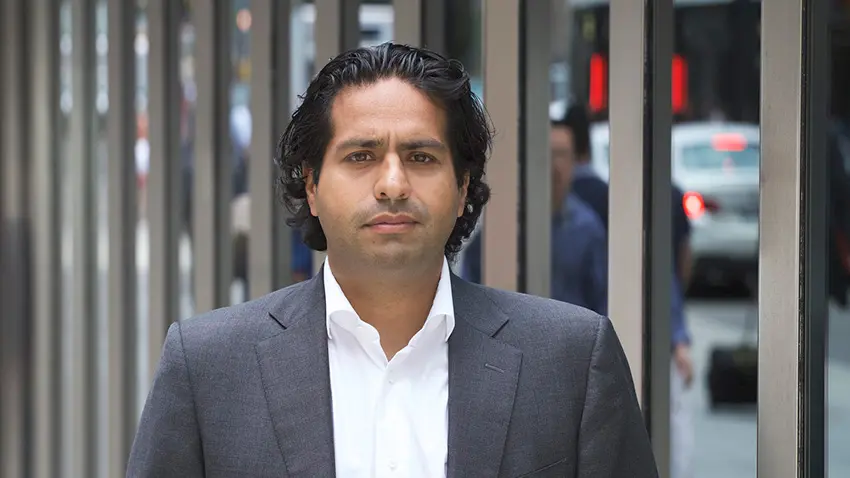When markets turn volatile and economic forecasts darken, investors accustomed to steady market momentum often struggle. Inflation shocks, abrupt interest-rate shifts, and political brinkmanship over trade agreements can make even the safest-seeming portfolios feel precarious.
For hedge funds willing to operate outside the constraints of index tracking, periods of disruption and volatility often reveal opportunities that simply do not exist in calmer times.
Moez Kassam, co-founder and Chief Investment Officer of Toronto- and Dallas-based Anson Funds, has spent the past two decades refining an approach built for this kind of turbulence. Managing roughly USD$2 billion, the firm runs a market-neutral platform that deliberately avoids reliance on broad market direction. Instead, it focuses on identifying inefficiencies, aiming to unlock value through corporate engagement, and investing in complex situations where the outcome is driven by specific catalysts rather than broad economic conditions.
For Kassam, this involves a mix of long-term core holdings in resilient companies and opportunistic positions in situations where change is already underway. A key part of that strategy is activism, where Anson takes an active role in shaping corporate outcomes. In one high-profile case, Anson accumulated a significant position in a Canadian-listed company, pressing for management changes, and seeing the share price triple after an acquisition of the company was announced. Other shareholder engagements have focused on governance reforms, operational restructuring, and asset spin-offs, initiatives that can drive value regardless of the macro backdrop.
Special situations are another cornerstone for Kassam and Anson Funds. These can often be regulatory-driven realignments. In periods of policy uncertainty, such as the current debate over tariffs, these targeted strategies provide a measure of insulation from the whiplash of political headlines.
History underscores the resilience of diversified, low-correlation hedge fund strategies. During the 2008 financial meltdown, funds with event-driven and market-neutral allocations outperformed global equities by double-digit margins, according to BarclayHedge. In the COVID-19 shock of March 2020, multi-strategy managers posted drawdowns less than half those of major stock indexes, per HFR. The resilience was not due to simply avoiding exposure, but to deploying capital in areas where market stress created mispricing.
The current environment presents similar conditions. Tariff threats are weighing on sectors dependent on cross-border supply chains, while domestic industries with steady cash flow and limited import reliance are comparatively stable. For investors able to analyse balance sheets, market structure, and regulatory signals in detail, these divergences present entry points that are largely uncorrelated with the day-to-day swings of the wider market.
For high-net-worth individuals and family offices, the takeaway is clear: in uncertain times, portfolio resilience is a strategy, not left to chance. A disciplined focus on targeted opportunities, event-driven returns, and active corporate engagement can allow capital to compound even when headline markets are unsettled.
Kassam’s approach has led to tremendous success as a manager and a philanthropist, leading him to be awarded an honorary Doctorate of Laws from Toronto Metropolitan University in May. For him, surviving turbulent market periods is less about calling the next macro move and more about positioning to benefit from structural and operational shifts that continue regardless of where the index closes on a given day. In a year when trade policy, monetary uncertainty, and political risk are all competing for investors’ attention, Kassam’s philosophy is likely resonating well beyond the hedge fund community.


